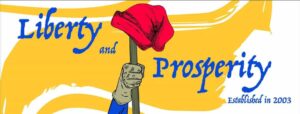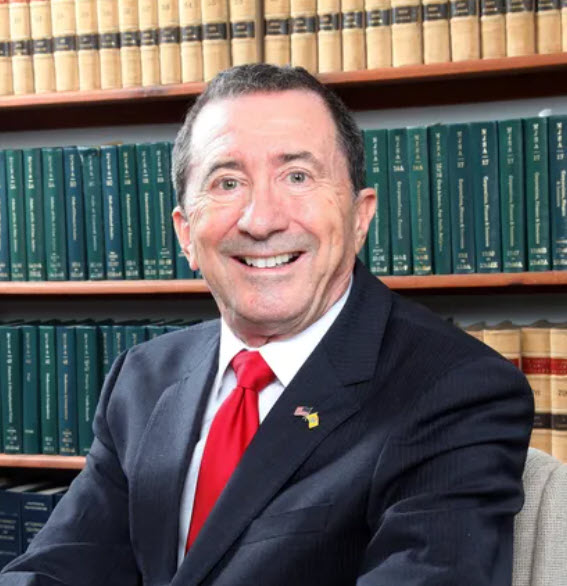Founding fathers had the right idea about regulating commerce
By Seth Grossman, Political Columnist
(Reprinted from March 31, 2010 Current-Gazette Newspapers of Atlantic and Cape May Counties, http://www.shorenewstoday.com/news.php?id=8068)
There was a very cold winter in 1787-1788. Then there was a late, wet spring and a dry summer. Farmers around the world produced less grain. Bread got very expensive.
At that time, France was one of the richest and most modern countries in Europe. Many of its people lived in big cities. Everyone in ?enlightened? France agreed that it was the job of government to bring down the price of bread and make it ?affordable.?
The French king appointed a bread ?czar? to run the economy. The government took over the grain business and made laws forcing bread to be sold at low prices. Anyone caught charging too much or holding back supplies to get a higher price later was arrested or killed as a criminal.
These price controls caused even worse shortages. Who would invest in more grain and bread production if the government wouldn?t let them make a profit? The government had to buy grain from out of the country, and borrow and raise taxes to pay for it. Because the French believed they were ?entitled? to cheap bread, they refused to eat potatoes ? which grew better in bad weather ? like Americans and other Europeans.
Within two years, the government of France was broke. Angry mobs started a revolution to collect higher taxes from the rich. That revolution went on for 15 years ? long after the government seized all the property of everyone who was well off. Most people in France were still angry because they felt they were not getting their fair share from the government, while others were getting too much ? so they fought to control the government.
The people who ran the government closed any newspaper and arrested or killed any person who opposed them. When opponents fled to nearby countries, France went to war against those countries as well.
From 1789 to 1804, roughly 200,000 French men, women and children were killed in foreign wars, civil war or executions or died from disease and starvation in prisons. After 15 years, Napoleon became an absolute dictator and devastated all of Europe with eight more years of war. During this time, the only invention that came out of France was the guillotine ? a machine that killed political opponents efficiently and ?humanely.?
During this time, America had the same bad weather as France. But unlike the ?modern? French, the ?backward? Americans never demanded ?affordable? bread from their government.
Americans had very little government and paid almost nothing in taxes. They knew that this ?liberty? let them live better than anyone in Europe. Americans had just fought a war with England for eight years to keep things that way.
When the French demanded cheap bread from their government, Americans demanded cheaper government.
When the war with England ended in 1783, most of the 13 independent states of America charged high taxes on all goods brought in from any other state. They also required expensive licenses and permits on ships and wagons. This increased the cost of living and caused hardship to many Americans ? including George Washington.
In 1785, Washington held a meeting at his home and urged leaders in all 13 states to let ships, wagons and goods move freely from one state to another without being taxed or licensed by 13 separate state governments.
Two years later, delegates from all 13 states gathered in Philadelphia for a Constitutional Convention. They adopted a new Constitution in 1787. The states ratified it in 1788, and the new Constitution took effect in 1789.
Under the new Constitution, only a new national Congress ? not 13 separate state governments ? could regulate commerce between the states. All rules on trade and commerce had to apply equally to everyone.
When cold, wet weather caused poor grain harvests in some states, farmers in other states cleared fields, increased production and sold their grain at a profit to where it was needed. Americans built roads, canals and steamboats to move farm products and everything else cheaply and efficiently around the country. And, of course, whenever grain for bread was too expensive, Americans cooked up great recipes for cheaper potatoes, corn and beans instead.
But Americans today think more like the French. Now when we can?t afford something, we no longer increase competition and cut taxes and regulations to bring down the price. Instead, we demand that the government tax someone else, so all the things we want are ?affordable.?
We can only afford things that the government pays for. But now we can?t afford our government.
Somers Point attorney Seth Grossman appears live on WVLT-92.1FM heard throughout South Jersey 8-9 a.m. every Saturday. For information see www.libertyandprosperity.org, email grossman@snip.net or call (609) 927-7333. Breakfast discussions are 9:30-10:30 a.m. every Saturday at the Athena Diner, 1515 New Road, Northfield.

